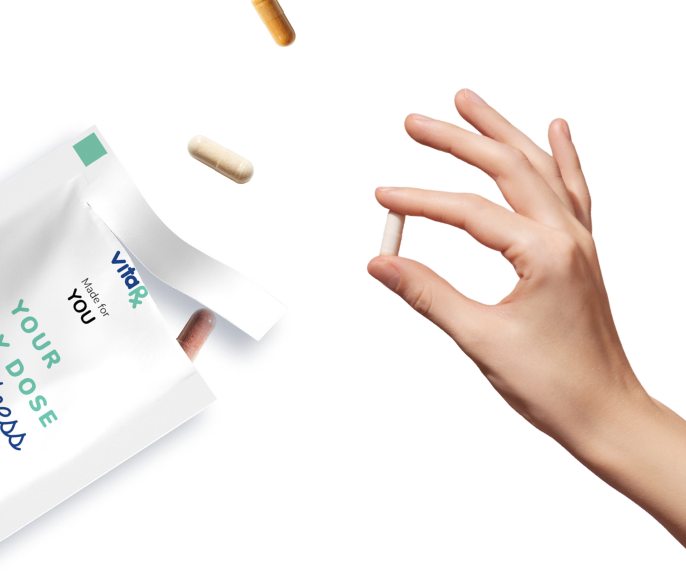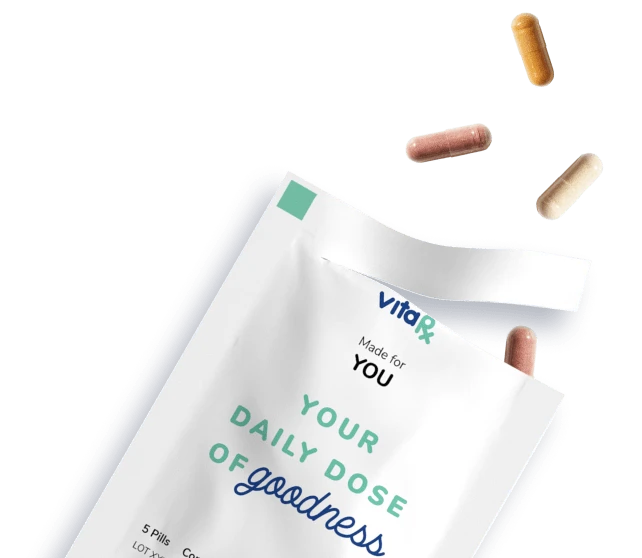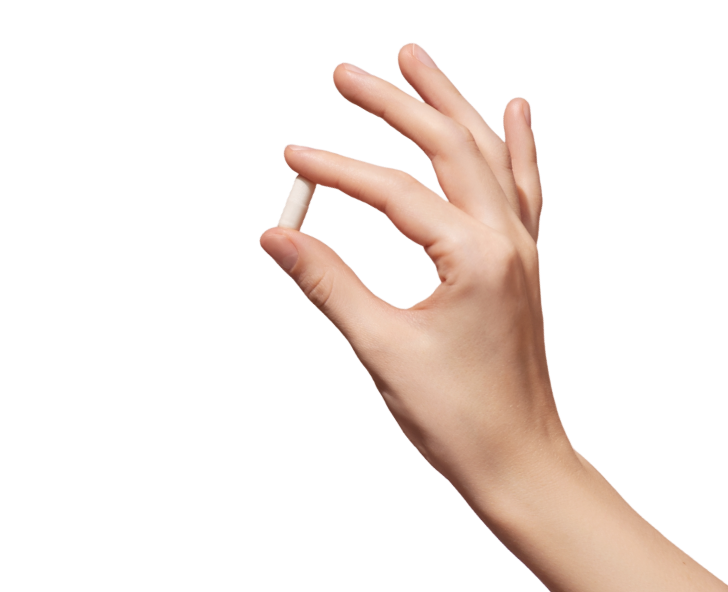Last update: April 2, 2025
6 minute read
What is Boron? And What Does Boron Do?
Discover what does boron do for your body. Learn how this essential mineral supports bone strength, hormone balance, and mental clarity while ensuring safe intake for optimal health.

By Stephanie Wright, RN, BSN
Edited by Dr. Jacquie Leone, NMD, HN

Boron is an essential trace mineral that plays a crucial role in overall wellness. In this post, we explain what is boron and reveal some impressive boron benefits that can enhance your health.
You can easily obtain this nutrient from boron rich foods and other natural boron food sources. For people with dietary gaps, understanding the boron supplement benefits can be the key to ensuring your body receives adequate support, including boron for bone health.
Key takeaways
- Boron plays an important role in supporting bone health, brain function, and hormone regulation
- Foods rich in Boron include raisins, almonds, hazelnuts, dried apricots, and legumes
- The recommended daily intake of Boron for adults is between 1 and 3 mg
What is boron, and how does it work?
Boron is a trace mineral that plays a crucial role in maintaining your overall health. For instance, it's a key player in metabolizing essential nutrients like calcium, magnesium, and vitamin D, which are super important for strong bones and teeth. Plus, it's been shown to help with brain function and even hormone regulation.

Benefits of boron
- Bone-building champion: It works together with other nutrients like calcium, magnesium, and vitamin D to maintain bone density and strength.
- Brain function: It helps with cognitive processes, such as memory and concentration.
- Hormone regulation, particularly estrogen and testosterone: Boron may potentially help keep your hormones in check and your mood swings at bay.
- Wound healing: Boron has been shown to increase the activity of enzymes responsible for healing damage to the skin.
- Limits the chances of fractures: Let's consider the role of boron in bone health. A deficiency in this mineral may lead to weak bones and an increased risk of fractures.
Can you get enough boron from food alone?
Before you go on a supplement-shopping spree, let's discuss boron in your diet. Boron is naturally found in many foods, so you might already be getting a decent amount from your daily meals. Some fantastic sources of boron include fruits like apples, prunes, pears, grapes, nuts, beans, and even avocado.
VitaRx Tip
If you don't get enough nutrients from a balanced diet, supplements can help bridge the gap in your nutritional needs to support your overall health.
Recommended boron intake
The recommended daily intake of boron varies depending on factors like age, sex, and overall health, but for most adults, it's around 1 to 3 mg per day (not to exceed 20 mg per day).
Factors like soil quality and farming practices can influence the amount of boron in your food sources. So, while it's entirely possible to meet your boron needs through a well-balanced diet, it might be a bit of a challenge to know if you're hitting that sweet spot.
If you're eating a varied and wholesome diet with plenty of fruits, veggies, nuts, and legumes, chances are you're already getting enough boron. But if you suspect that your diet might lack this essential trace mineral, it's always a good idea to consult with a healthcare professional to discuss your options and see if a supplement might be right for you.
What are the health risks of taking excess boron?
Obtaining boron in food is generally safe, but caution is warranted when consuming concentrated forms like boric acid or borax—often found in household cleaning products and pesticides. When ingested in high amounts, these compounds can lead to toxicity.
Potential symptoms include:
- Neurological effects: Headache and restlessness, possibly due to impacts on the nervous system.
- Gastrointestinal issues: Nausea, vomiting, diarrhea, and indigestion.
- Dermatological reactions: Rash, skin flushing, and irritation.
- Mood and behavioral changes: Depression and excitation.
- Hair and weight effects: Alopecia (hair loss) and anorexia (an eating disorder characterized by abnormally low body weight).
- Kidney stress: Excessive doses may lead to kidney injury.
Even though boron for bone health remains one of the most celebrated roles of this mineral, it's crucial to avoid overdosing, particularly from non-food sources. Following recommended dosage guidelines and consulting a healthcare professional is essential to minimize these risks.
VitaRx Tip
Remember, though, that boron supplements aren't a one-size-fits-all solution. It's essential to talk with your healthcare provider before diving into supplementation to make sure it's the right choice for your unique health needs.
When should you consider a boron supplement?
Boron supplements aren't for everyone, but there are some situations where they might come in handy. Before you start stocking up on boron, let's take a look at some scenarios where supplementation could make sense:
- Dietary deficiency: If your diet isn't providing enough boron (looking at you, junk food aficionados!), you might benefit from a little boost via supplementation.
- Bone health concerns: A healthcare professional may recommend boron supplements to support bone strength and density for those with a higher risk of bone-related issues, like osteoporosis.
- Hormonal imbalances: If you're struggling with hormonal woes, like PMS or menopause symptoms, boron might lend a helping hand in restoring balance.
Boron content in common foods
Are you curious about the boron content in some of your favorite foods? Look no further!
Here's a list to show you the boron levels in many dietary staples. Remember that these values are approximate, and actual amounts may vary depending on factors like soil quality and farming practices.
Boron content in common foods (in milligrams per 100g):
- Prune juice (1 cup): 1.43
- Avocado (raw, cubed, ½ cup): 1.07
- Raisins (1.5 ounces): 0.95
- Peaches (1 medium): 0.80
- Grape juice (1 cup): 0.76
- Apples (1 medium): 0.66
- Pears (1 medium): 0.50

Frequently asked questions (FAQ)
Here are some of the most frequently asked questions about boron.
Final thoughts
The benefits of boron extend far beyond supporting strong bones; they influence different aspects of your health and wellness. Incorporating a balanced diet that includes foods with boron can help you enjoy the natural advantages of this nutrient while mitigating risks associated with overconsumption. By choosing nutrient-dense options and being mindful of your intake, you can harness the full potential of boron for a healthier, more vibrant life.
Source
- Nothing Boring About Boron - PMC
- Pivotal role of boron supplementation on bone health: A narrative review
- The Physiological Role of Boron on Health
- BORON: Overview, Uses, Side Effects, Precautions, Interactions, Dosing and Reviews
- Boron - Health Professional Fact Sheet
- BORON: Overview, Uses, Side Effects, Precautions, Interactions, Dosing and Reviews
- The Physiological Role of Boron on Health
Author

Stephanie Wright
Stephanie brings over 13 years of diverse nursing experience to the table, having honed her expertise in critical care, mental health, and utilization management. Her journey as a registered nurse across these various healthcare sectors underscores her adaptability and deep commitment to patient care.
Fact checker

Dr. Jacquie Leone
Dr. Leone holds a BA in Psychology, a Doctorate in Naturopathic Medicine, and board certification in holistic nutrition. In addition to practicing medicine, Dr. Leone has developed and currently teaches science and nutrition courses for a nationally accredited institution. She specializes in chronic illness, gastrointestinal dysregulation, inflammatory conditions, and mental health. Her unique approach combines the wisdom of Eastern medicine with the technology and science of Western medicine, offering an integrative approach heavily focused on functional medicine.
At VitaRx, we're not just passionate about our work — we take immense pride in it. Our dedicated team of writers diligently follows strict editorial standards, ensuring that every piece of content we publish is accurate, current, and highly valuable. We don't just strive for quality; we aim for excellence.
Related posts
While you're at it, here are some other relevant articles you might be interested in.

Get your personalized vitamin recommendations in less than
5 minutes.
Get your personalized vitamin recommendations in less than
5 minutes.







